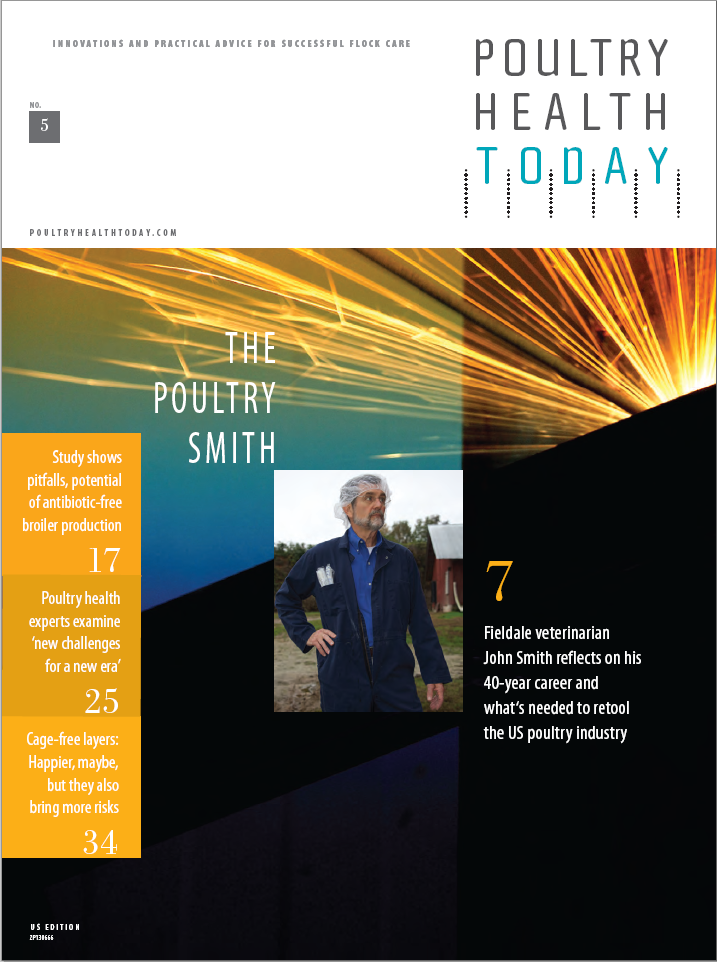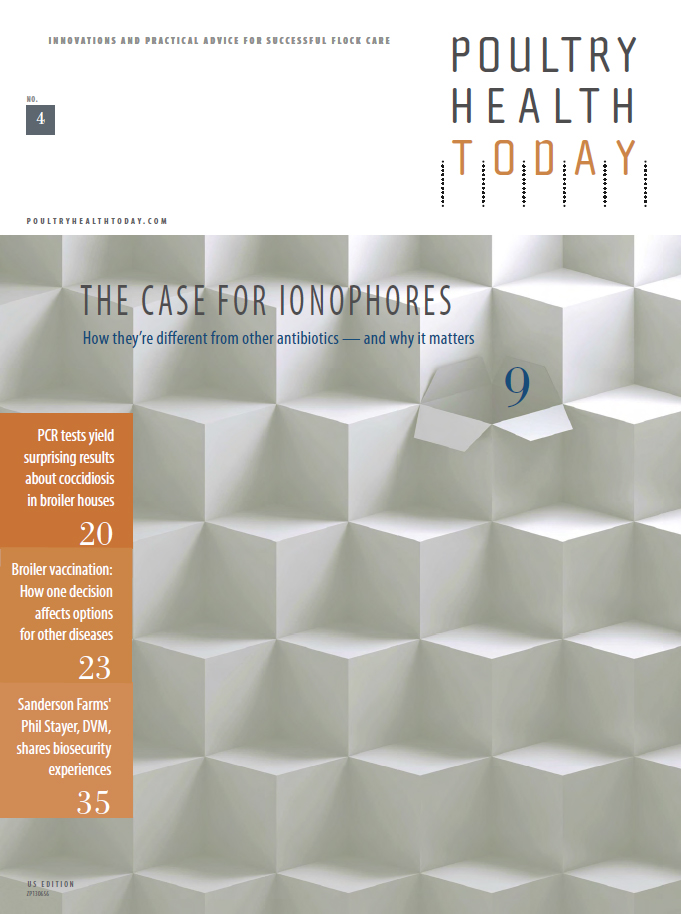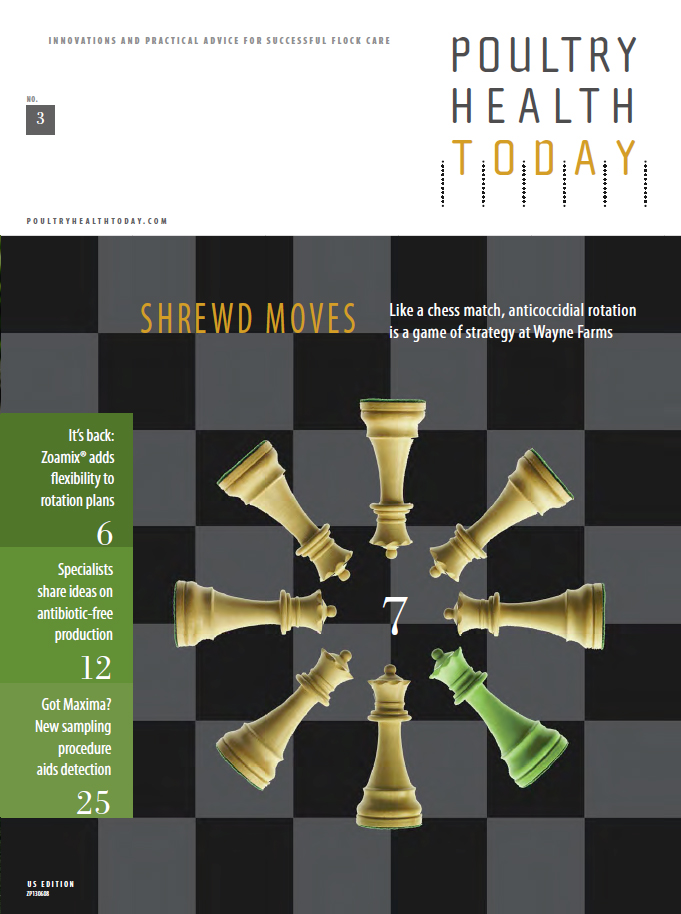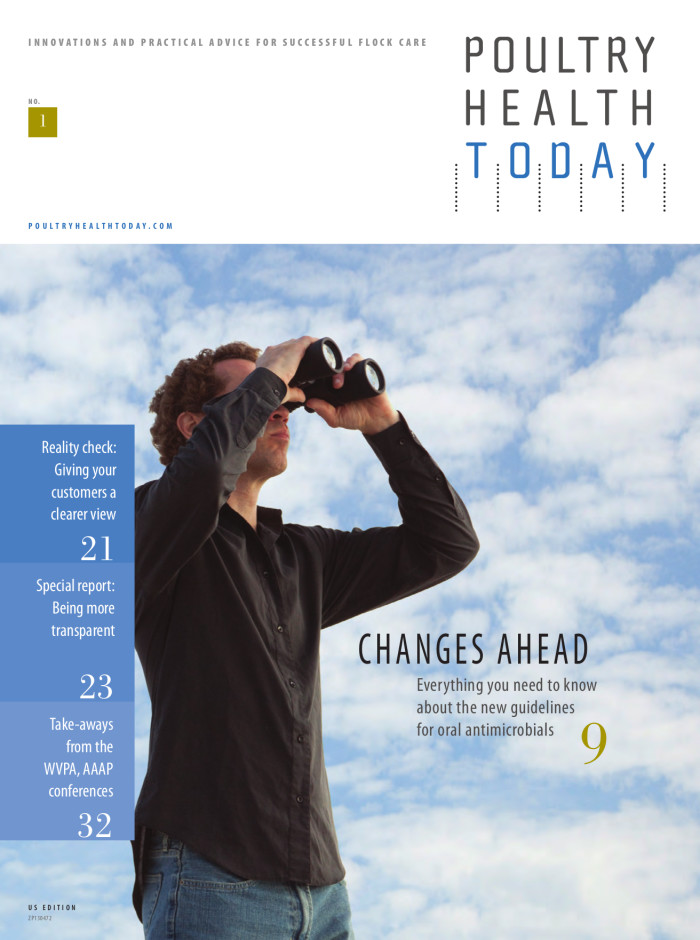

S. enteritidis shedding more frequent among hens in conventional cages
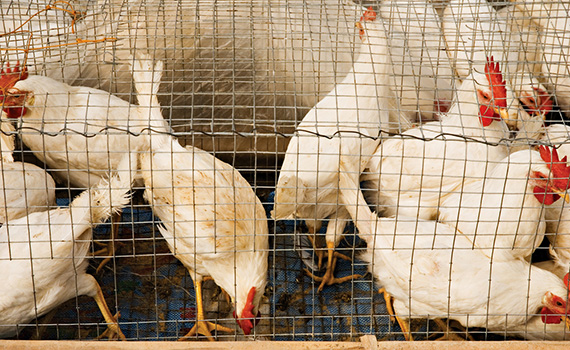
Fecal shedding of Salmonella enteritidis was significantly more frequent among experimentally infected laying hens in conventional cages compared to hens housed in enriched colony cages, indicates a study from USDA and North Carolina State University researchers.1
Animal-welfare concerns have initiated the development of alternatives to traditional caged housing for hens. Unknown is whether different housing systems affect the introduction, transmission and persistence of Salmonella in poultry, which can be a source of illness in people, poultry research microbiologist richard gast, PhD, of USDA’s agricultural research Service, said at the 2015 Poultry Science association annual meeting.
Gast and colleagues monitored fecal shedding among laying hens in two trials. In each trial, they distributed 136 hens into conventional or enriched colony cages and then orally inoculated them withS. enteritidis. at weekly intervals, the researchers cultured samples of voided feces to test for the pathogen.
S. enteritidis fecal shedding after inoculation was detected for up to 8 weeks among hens in the enriched colony cages and for up to 10 weeks among hens housed in conventional cages, he said.
For both trials combined, the frequency of positive samples after inoculation in conventionally housed hens versus hens in enriched colony cages was 84.7% versus 71.5% 1 week later, 54.2% versus 31.3% 2 weeks later, 21.5% versus 7.6% 3 weeks later and 9.7% versus 2.8% 4 weeks later. The difference between the two groups was significant (p < 0.05), Gast said.
“These results demonstrate that the susceptibility of hens to intestinal colonization by S. enteritidiscan differ between conventional and enriched cage-based production systems, although this effect does not necessarily translate into a corresponding difference in the longer-term persistence of fecal shedding,” he said.
1Gast R, et al. Persistence of fecal shedding of Salmonella enteritidis by experimentally infected laying hens housed in conventional or enriched cages. 2015 Poultry Science Association annual meeting, Louisville, Ky.
More Issues

